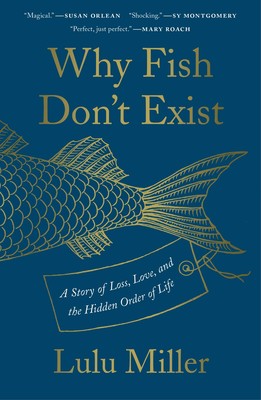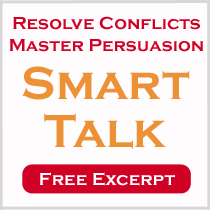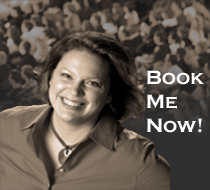Discussion Questions: Why Fish Don’t Exist
 Are you looking for discussion questions for April 2020 book, Why Fish Don’t Exist: A Story of Loss, Love, and the Hidden Order of Life by Lulu Miller? Lulu is a fellow podcaster who at one time was a writer and producer at Radiolab and co-founder of Invisibilia; two of my favorite podcasts. I had to read it! I found the book so unique that I encouraged my book club to read the book too. This means I was responsible for leading the discussion. When I looked online however, I couldn’t find any discussion questions, so I had to write my own. I thought I’d post them here for other book clubs looking possible discussion questions.
Are you looking for discussion questions for April 2020 book, Why Fish Don’t Exist: A Story of Loss, Love, and the Hidden Order of Life by Lulu Miller? Lulu is a fellow podcaster who at one time was a writer and producer at Radiolab and co-founder of Invisibilia; two of my favorite podcasts. I had to read it! I found the book so unique that I encouraged my book club to read the book too. This means I was responsible for leading the discussion. When I looked online however, I couldn’t find any discussion questions, so I had to write my own. I thought I’d post them here for other book clubs looking possible discussion questions.
Our group loved Why Fish Don’t Exist and we had a great discussion using these questions. If you decide to use some of these with your group, please be sure to shoot me an email to let me know!
Discussion Questions for Why Fish Don’t Exist by Lulu Miller
- When you first heard the title (Why Fish Don’t Exist: A Story of Loss, Love, and the Hidden Order of Life) what was your reaction?
- Did you enjoy her writing style and if so, what made it appealing?
- The book is part biography (David Start Jordan), part memoir, and part moral instruction/philosophy. Did you like that these three disparate elements were combined? Which of these three elements was your favorite?
- What was most surprising about the book? (Eugenics in US?, Possible Murder?, Fish don’t exist?)
- Chaos is a theme that runs throughout the book. Does the author’s definition change over time? If so, how?
- How did Lulu’s view of the meaning of life change over the course of the book? (See Q6 and Q7 for possible answers.)
-
Towards the beginning of the book she explains that, on vacation in Wellfleet at the age of seven, standing in a marsh, she asked the scientist father she adored the meaning of life: “My dad paused, raising one black eyebrow behind the binoculars. Then he turned to me grinning and announced, ‘Nothing!’ ” He explained that “there is no meaning of life. There is no point. There is no God. No one watching you or caring in any way. There is no afterlife. No destiny. No plan … the truth is, none of this matters, and you don’t matter.
Do you believe her father would talk to her like this at such a young age and that she would remember it? Today as a adult, how would you respond to the father? -
When thinking about the meaning of life, toward the end of the book she offers the metaphor of the dandelion…”a weed to gardener, but to an herbalist valuable (aides digestion) and to a painter it might be pigment.” She suggests that nothing has intrinsic value, value is something that we assign. Do you agree? How have you seen this in your own life?
-
In a sense this book is about chaos and resilience? After an earthquake practically ruins the life work of David Starr Jones Lulu writes: “Does he hear what seems to be the obvious message of the earthquake? That entropy is the way of the world and no human can ever stop it? Nope. This is when the bastard, the wonderful bastard, takes out his sewing needle and plunges it straight into our ruler’s throat.”
If you are willing, please share a time that you faced chaos/tragedy/loss and how it impacted you? Were you quickly resilient (like DSJ) or did you wallow like Lulu? How did that experience change you? - The book is weirdly resonant with this moment in time. What chaos/issues/conflicts are we all struggling we with right now (finances, health, online education, parenting, relationships, masks, black lifes matter, etc.)?
- What strategies are you using to move forward from chaos/issues/conflicts? Lulu said in an interview that one strategy she uses is to let go of the specificity of her goals. “That in some ways my goals were smaller and more short sighted and than what the universe might have in store.” Do you have other strategies that might work?
- One of the motifs of the book is that even scientists and atheists like ritual. Why do you think she included that? (Is she saying that science is important, but scientists are humans too; humans that need meaning, ritual, spirituality? That we should move slowly and carefully when considering/accepting science especially as it impacts questions of morality/ethics?)
- Lulu talks about the pitfalls of positivity in the book: too much positivity and we don’t have a grasp on life…not enough and we can’t overcome barriers. How do you balance positivity for yourself; for your children?
- Do you think the classification of life naturally leads to a belief in a hierarchy of life. How does this impact how people people are classified (and marginalized) today?
- If you were to have dinner with David Starr Jordan what would you ask him?
- If you were to have Lulu Miller over for dinner, what would you ask her?
We are hosting an author interview on August 11, 202 8:00-8:30 pm EST. If you would like to join us via Zoom, contact me.











Share Your Thoughts!